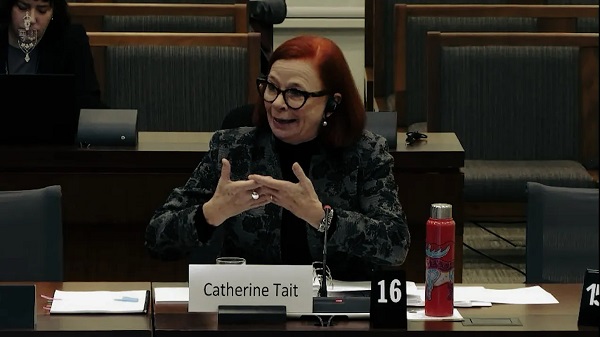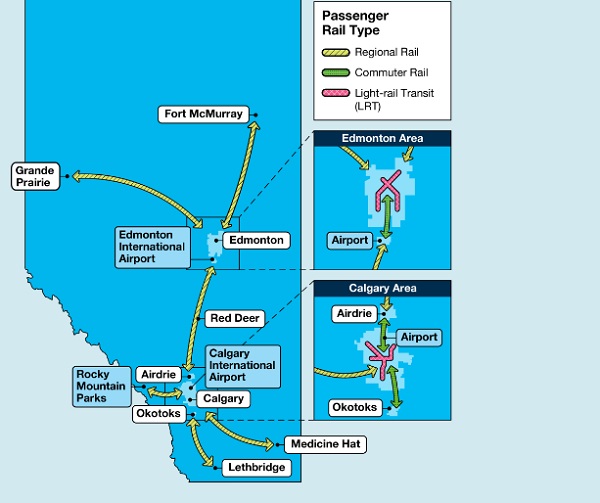Agriculture
Trump Floats Massive Tariffs On John Deere If Manufacturing Shifts To Mexico
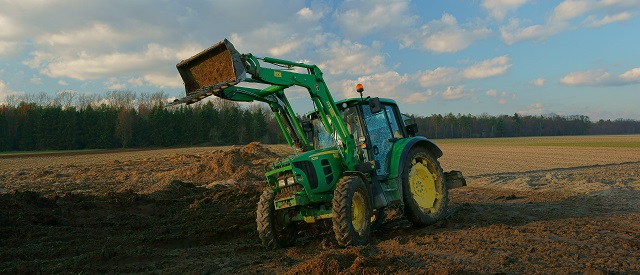
From the Daily Caller News Foundation
Former President Donald Trump issued a warning Monday about imposing 200% tariffs on John Deere products if the company relocates its manufacturing operations to Mexico.
Trump engaged with local farmers and manufacturers during an event in Smithton, Pennsylvania, about the impact of China’s economic policies on the U.S. economy, according to the Associated Press. The former president highlighted his economic strategy against Vice President Kamala Harris by pointing out the potential benefits of tariffs and increased energy production, which he argued could help lower costs and protect local industries.
Trump highlighted John Deere’s recent decision to move some manufacturing to Mexico, and he threatened a 200% tariff on the company should it proceed with its plans under his potential administration, the AP reported.
JUST IN: Donald Trump points at the tractors behind him, tells John Deere that if they move their business to Mexico he is going to put a 200% tariff on them.
🔥🔥🔥
The comments came while Trump was speaking to farmers in Pennsylvania.
“I will tell you that I just noticed… pic.twitter.com/5wpEAuTEo4
— Collin Rugg (@CollinRugg) September 23, 2024
“I just noticed behind me John Deere tractors, I know a lot about John Deere. I love the company, but as you know, they announced a few days ago that they’re gonna move a lot of their manufacturing business to Mexico,” Trump said, according to a video posted on X. “I’m just notifying John Deere right now. If you do that, we’re putting a 200% tariff on everything that you wanna sell into the United States. So that if I win, John Deere is gonna be paying 200%.”
John Deere previously announced that it will lay off roughly 610 employees across three of its plants in Illinois and Iowa. The company announced on May 31 that it will relocate skid steer and compact track loader production from Dubuque, Iowa, to Mexico by the end of 2026 as part of a broader strategy to enhance efficiency and manage rising manufacturing costs amidst changing business conditions.
Agriculture
Saskatchewan potash vital for world food

From Resource Works
Fertilizer Canada says the fertilizer industry contributes $23 billion a year to Canada’s economy and provides over 76,000 jobs.
A small potash extraction company in Manitoba calls Saskatchewan “the Niagara Falls of potash in Canada.”
The current 10 mines in Saskatchewan produced around 13 million tonnes in 2023, accounting for some 33% of global potash production, and exported 95% of it to more than 75 countries.
Potash mine No. 11 in Saskatchewan is working toward production in late 2026. That’s the $14-billion Jansen mine, owned by BHP, located 140 kilometres east of Saskatoon. It aims to produce around 8.5 million tonnes a year to start, and as much as 16–17 million tonnes a year in future stages.
With potash used primarily in agricultural fertilizers, Saskatchewan’s output is a key ingredient in global food security. Fertilizer is responsible for half of the world’s current food production.
As Real Agriculture points out: “Fertilizer production is not only an economic driver in Canada, but it is also a critical resource for customers around the world, especially in the United States.”
This is particularly important as Russia’s war on Ukraine has raised doubts about reliable supplies of potash from Russia, the world’s No. 2 producer, which produced 6.5 million tonnes in 2023.
In fertilizers, the potassium from potash increases plant growth and crop yields, strengthens roots, improves plants’ water efficiency, and increases pest and disease resistance. It improves the colour, texture, and taste of food. Natural Resources Canada adds: “Potassium is an essential element of the human diet, required for the growth and maintenance of tissues, muscles and organs, as well as the electrical activity of the heart.”
Canada’s federal government has included potash as one of 34 minerals and metals on its list of critical minerals.
Fertilizer Canada says the fertilizer industry contributes $23 billion a year to Canada’s economy and provides over 76,000 jobs.
The potash operations in Saskatchewan are in the Prairie Evaporite Deposit, the world’s largest known potash deposit, formed some 400 million years ago as an ancient inland sea evaporated. The deposits extend from central to south-central Saskatchewan into Manitoba and northern North Dakota. These deposits form the world’s largest potash reserves, at 1.1 billion tonnes.
Manitoba’s first potash mine is close to bringing its product to market. The PADCOM mine is 16 kilometres west of Russell, Manitoba, near the Manitoba-Saskatchewan border. The Gambler First Nation has acquired a one-fifth stake in the project.
PADCOM injects a heated mixture of water and salt underground to dissolve the potash, which is then pumped to the surface and crystallized. CEO Brian Clifford says this process is friendlier to the environment than the conventional method of mining underground and extracting ore from rock deposits.
Saskatchewan’s northern potash deposits are about 1,000 metres below the surface and are extracted using conventional mining techniques. To the south, deposits are anywhere from 1,500 to 2,400 metres deep and are mined using solution techniques.
PADCOM aims to produce 100,000 tonnes of potash per year, eventually growing to 250,000 tonnes per year. However, PADCOM president Daymon Guillas notes that across the Manitoba-Saskatchewan border, the Nutrien potash mine near Rocanville, Saskatchewan, produces five to seven million tonnes per year.
“In 36 hours, they produce more than we do in a year. Saskatchewan is the Niagara Falls of potash in Canada. Our little project is a drip, just a small drip out of the faucet.”
(New Brunswick once had a small potash mine, but it closed in 2016.)
Real Agriculture says: “Canadian-produced potash remains vital to the U.S.’s ability to produce enough corn for feed, ethanol production, and export requirements, at a time when the U.S. heightens its focus on reducing exposure to international integrated supply chains in favour of U.S. domestic supply chains.”
Writer Shaun Haney continues: “For the U.S. corn farmer, Canadian-produced potash is critical for achieving the top yields. According to StoneX, over the past three years, Canada accounts for roughly 87 per cent of potash imports by the U.S., while Russia sits at 9.5%.”
Agriculture
Ottawa may soon pass ‘supply management’ law to effectively maintain inflated dairy prices
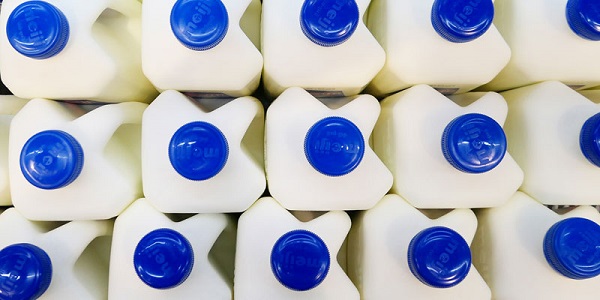
From the Fraser Institute
Many Canadians today face an unsettling reality. While Canada has long been known as a land of plenty, rising living costs and food insecurity are becoming increasingly common concerns. And a piece of federal legislation—which may soon become law—threatens to make the situation even worse.
According to Statistics Canada, rising prices are now “greatly affecting” nearly half of Canadians who are subsequently struggling to cover basic living costs. Even more alarming, 53 per cent are worried about feeding their families. For policymakers, few national priorities are more pressing than the ability of Canadians to feed themselves.
Between 2020 and 2023, food prices surged by 24 per cent, outpacing the overall inflation rate of 15 per cent. Over the past year, more than one million people visited Ontario food banks—a 25 per cent increase from the previous year.
Amid this crisis, a recent academic report highlighted an unforgivable waste. Since 2012, Canada’s dairy system has discarded 6.8 billion litres of milk—worth about $15 billion. This is not just mismanagement, it’s a policy failure. And inexcusably, the federal government knows how to address rising prices on key food staples but instead turns a blind eye.
Canada’s dairy sector operates under a “supply management” system that controls production through quotas and restricts imports via tariffs. Marketing boards work within this system to manage distribution and set the prices farmers receive. Together, these mechanisms effectively limit competition from both domestic and foreign producers.
This rigid regulated system suppresses competition and efficiency—both are essential for lower prices. Hardest hit are low-income Canadians as they spend a greater share of their income on essentials such as groceries. One estimate ranks Canada as having the sixth-highest milk prices worldwide.
The price gap between the United States and Canada for one litre of milk is around C$1.57. A simple calculation shows that if we could reduce the price gap by half, to $0.79, Canadians would save nearly $1.9 billion annually. And eliminating the price gap would save a family of four $360 a year. There would be further savings if the government also liberalized markets for other dairy products such as cheese, butter and yogurt. These lower costs would make a real difference for millions of Canadians.
Which brings us back to the legislation pending on Parliament Hill. Instead of addressing the high food costs, Ottawa is moving in the opposite direction. Bill C-282, sponsored by the Bloc Quebecois, has passed the House of Commons and is now before the Senate. If enacted, it would stop Canadian trade negotiators from letting other countries sell more supply-managed products in Canada as part of any future trade deal, effectively increasing protection for Canadian industries and creating another legal barrier to reform. While the governing Liberals hold ultimate responsibility for this bill, all parties to some degree support it.
Supply management is already causing trade friction. The U.S. and New Zealand have filed disputes (under the Canada-United States-Mexico Agreement and the Comprehensive and Progressive Agreement for Trans-Pacific Partnership) accusing Canada of failing to meet its commitments on dairy products. If Canada is found in violation, it could face tariffs or other trade restrictions in unrelated sectors. Dairy was also a sticking point in negotiations with the United Kingdom, leading the British to suspend talks on a free trade deal. The costs of defending supply management could ripple farther than agriculture, hurting other Canadian businesses and driving up consumer costs.
Dairy farmers, of course, have invested heavily in the system, and change could be financially painful. Industry groups including the Dairy Farmers of Canada carry significant political influence, especially in Ontario and Quebec, making it politically costly for any party to propose reforms. The concerns of farmers are valid and must be addressed—but they should not stand in the way of opening up these heavily regulated agricultural sectors. With reasonable financial assistance, a gradual transition could ease the burden. After all, New Zealand, with just 5 million people, managed to deregulate its dairy sector and now exports 95 per cent of its milk to 130 countries. There’s no reason Canada could not do something similar.
Bill C-282 is a flawed piece of legislation. Supply management already hurts the most vulnerable Canadians and is the root cause of two trade disputes that threaten harm to other Canadian industries. If passed, this law will further tie the government’s hands in negotiating future free trade agreements. So, who benefits from it? Certainly not Canadians struggling with food insecurity. The government’s refusal to modernize an outdated inefficient system forces Canadians to pay more for basic food staples. If we continue down this path, the economic damage could spread to other sectors, leaving Canadians to bear an ever-increasing financial burden.
Author:
-

 COVID-192 days ago
COVID-192 days agoNew book edited by Naomi Wolf exposes Pfizer’s ‘crimes against humanity’
-

 Alberta2 days ago
Alberta2 days agoThe Alberta energy transition you haven’t heard about
-

 espionage2 days ago
espionage2 days agoShock interview reveals big names connected to international paedophile network
-

 Brownstone Institute2 days ago
Brownstone Institute2 days agoJustice Is Served: Jay Bhattacharya Chosen to Be NIH Director
-

 Business2 days ago
Business2 days agoGreen Energy or Green Grift? SDTC at the Center of a $38 Million Scandal
-
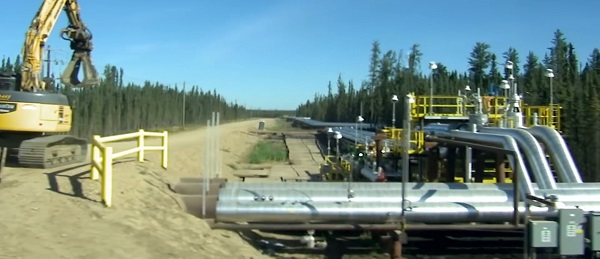
 Alberta2 days ago
Alberta2 days agoA Trump Effort To Revive Keystone XL Would Likely Be Purely Symbolic
-

 Crime2 days ago
Crime2 days agoThe Bureau Exclusive: The US Government Fentanyl Case Against China, Canada, Mexico
-

 Daily Caller2 days ago
Daily Caller2 days agoCelebrities Do Not Have The Political Star Power They Thought They Did



